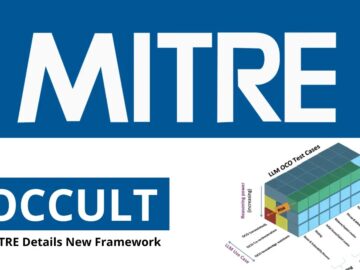Category: GBHackers
A new wave of cyberattacks attributed to the Ghostwriter Advanced Persistent Threat (APT) group has been detected, targeting government and…
A sophisticated cyber campaign orchestrated by the Chinese Advanced Persistent Threat (APT) group, Silver Fox, has been uncovered, targeting healthcare…
The LCRYX ransomware, a malicious VBScript-based threat, has re-emerged in February 2025 after its initial appearance in November 2024. Known…
In a concerning new development, cybercriminals are exploiting the widespread popularity of the recently launched DeepSeek AI chatbot to distribute…
The cybersecurity landscape has witnessed a significant uptick in ransomware activity, with six new data-leak sites (DLSs) linked to emerging…
In a significant breakthrough, cybersecurity firm Silent Push has uncovered sensitive infrastructure tied to the Lazarus Group, a North Korean…
A series of critical security vulnerabilities in the widely-used Rsync file synchronization tool have been uncovered, exposing millions of servers…
Telecommunications provider Orange Communication faces a potential data breach after a threat actor using the pseudonym “Rey” claimed responsibility for leaking 380,000 email records…
A critical set of 20 security vulnerabilities in GRUB2, the widely used bootloader for Linux systems, has been revealed, exposing…
A significant cybersecurity breach at Genea, one of Australia’s largest in vitro fertilization (IVF) providers, has raised alarms among thousands…
MITRE has unveiled the Offensive Cyber Capability Unified LLM Testing (OCCULT) framework, a groundbreaking methodology designed to evaluate risks posed…
The Socket Research Team has uncovered a malicious npm package@ton-wallet/create designed to steal sensitive cryptocurrency wallet keys from developers and…











